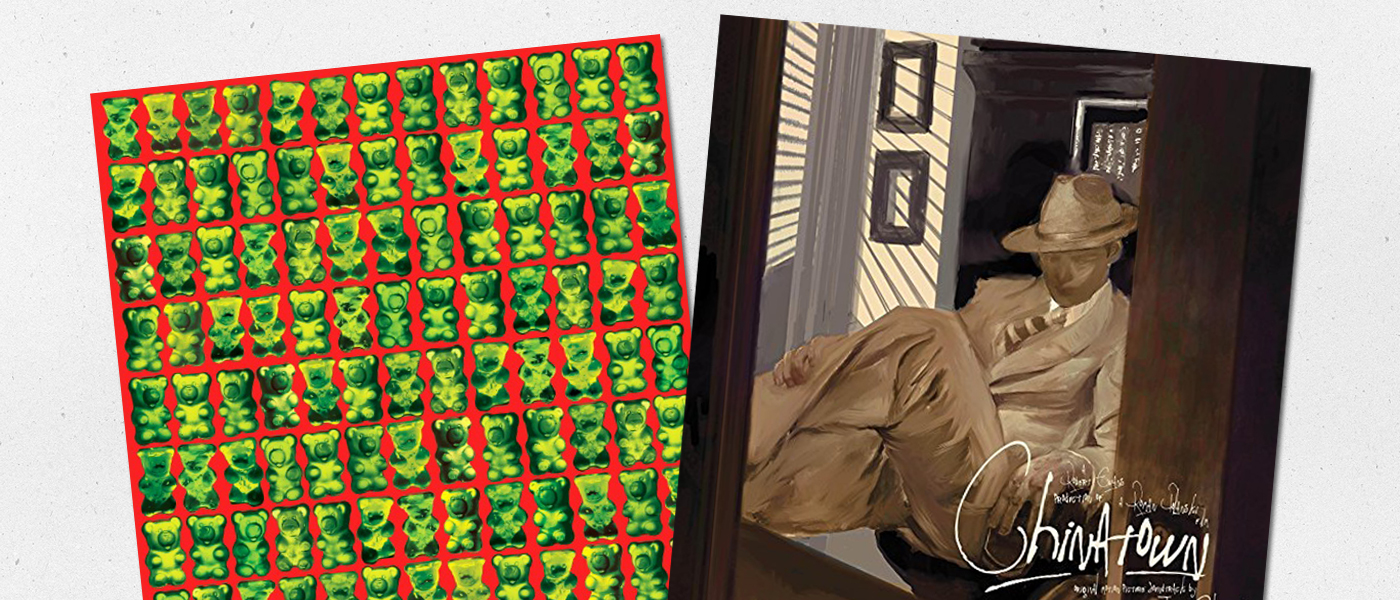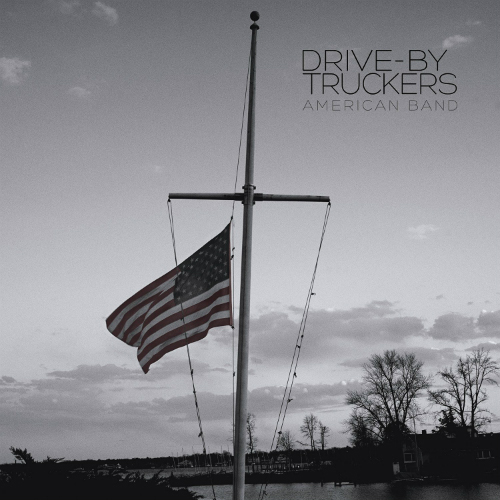
With their latest, American Band, that conscience blasts more loudly than the guitars ever did in songs like “Ronnie and Neil.” They may never write another rocker like that one again. But I have that rocker on another record. And I can’t wait to see what road these guys take next. This is different…
So different, in fact, that they even changed up their album artwork. Wes Freed’s hands are still in the dough, but they didn’t make the cake this time. And I reckon that makes sense when you consider that American Band is such a steep departure from even their last studio offering, English Oceans. I caught the band at the Fillmore a few weeks back, and the show colored the way I hear the new record, as shows so often do. Cooley’s songs, especially, take a little getting used to these days as he seems to be going for a more melodic vocal delivery than he has in years past. If you’re taken off guard when you first drop the needle, I’d advise you to try to get yourself to a show. It’ll all come together for you, I promise. None of this is to suggest that the studio work can’t stand on its own. I warmed up to American Band right away. Maybe because I’ve had the same low-level anxiety that many Americans (and people everywhere, really) have had during this election campaign. While no candidates are called out by name, or even directly alluded to as best I can tell, you don’t have to dig too deep to figure out where these guys are at politically. Makes me wonder how many of their fans might have hopped off their bandwagon as a result. They’re displaying a Black Lives Matter sign prominently onstage for this tour. If you’re the type of person that thinks that a statement such as that necessarily denigrates the importance of another group of people, then you’re probably in the wrong groove as far as the Truckers are concerned. I’ve educated myself on a few political issues based on the curiosity that these songs stoked in me. That’s a particular kind of art that puts DBT in rarefied air. When you can compare the Truckers to the Coup, you know things are getting hot in the USA. Both the principal songwriters can still turn some biting phrases in some surprising spots. Jay Gonzalez is still asserting himself as perhaps the most accomplished musician in the band, certainly the most diverse. They’re making a quieter noise, maybe, but it’s no less powerful. Quite the opposite, really. Lots of muscle and mirth to be found on American Band. Just what we need at a time like this.
Secrets Sponsor
I pre-ordered the limited edition pressed on red vinyl with some black accents. I think all versions come with a bonus 7” with one of Cooley’s tastier tunes on its single side. Record is a little thin, the pressing is just fine. I’ll take that all day. Comes with a download code too, and also some good liners with a Patterson essay as has become the norm. It’s a heady record for crazy times. I recommend it.
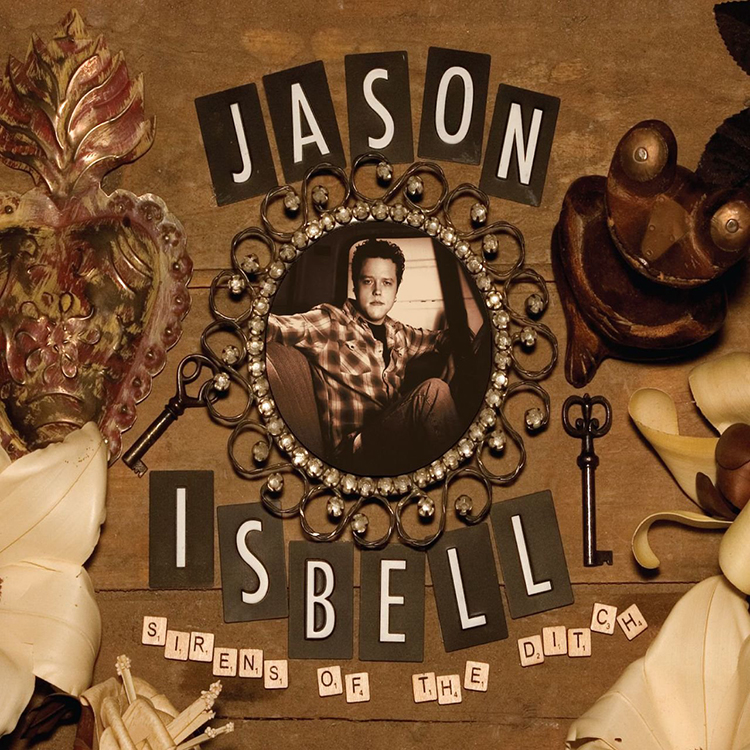
Speaking of the Drive-By Truckers: I remember going to see them play in Atlanta one night a little ways into this century expecting to see Rob Malone blaze his guitar alongside Patterson and Cooley. But he’d been replaced by some pudgy young guy who was dressed like he’d just robbed the Gap. Little did I know… that Jason Isbell was on his way, at that point. On his way to becoming one of his generation’s finest songwriters if he wasn’t already. His guitar playing made an immediate impression, but it would be a second before I heard his tunes. He came out swinging, but I’m stubborn so he had to prove it to me over the course of years. And, man, he did. I’m certain that both he and the Truckers would be thrilled if we’d all just stop mentioning their prior connection and move on. But for those of us that were there, we may never forget. Those boys were blazing. Anyway, I finally picked up a copy of his first solo record made way back in 2007. Seems longer than that, somehow. It’s called Sirens of the Ditch, and I’m glad I circled back for it.
Secrets Sponsor
I did that to maintain the completeness of my collection as much as anything else. But the songs have held up nicely over the intervening decade. It’d be hard to argue with someone saying that this batch of tunes doesn’t measure up to what was to come. He’s a more accomplished writer now, for certain, and I’ve noticed that he seems to have dropped this material from his live shows entirely. So maybe he doesn’t think the material is strong enough either. I think the record’s a blast. It doesn’t have my fave Isbell tunes, but it has some fun ones. I’ve always enjoyed his take on the Phil Spector murder in “Brand New Kind Of Actress.” “Try” is a rocker; “Chicago Promenade” is a tear jerker. “Grown” almost feels like Isbell’s take on the jam band aesthetic. Southeastern, it is not, and no one is fool enough to think that Sirens would have catapulted Isbell to his vaunted position in Nashville now. But it might have catapulted him to the next level which is the one right before he took over the “Americana” scene. I enjoy being able to trace an artist’s development over the course of their career, hogs, warts, and all. There’s nothing to be embarrassed about here, and if I ever write a song as strong as “Dress Blues,” then I might just retire right then and there. Sirens gives you a glimpse of a man becoming. If I were Jason Isbell, I’d be pleased as punch right about now. And I’d still be proud of Sirens of the Ditch.
My copy was purchased recently, and it had a hype sticker on the cover explaining that it had been pressed at RTI. That’s why I jumped. I could have sworn there was an earlier version pressed elsewhere, but I could be wrong. One way or the other, it’s a quality release on heavy wax with minimal extras. My copy has a couple of ticks, but I think it’s because of some residual pressing compound that didn’t come all the way off after the first cleaning. If you’re a fan, get one. It’s a cool document with some strong foreshadowing.
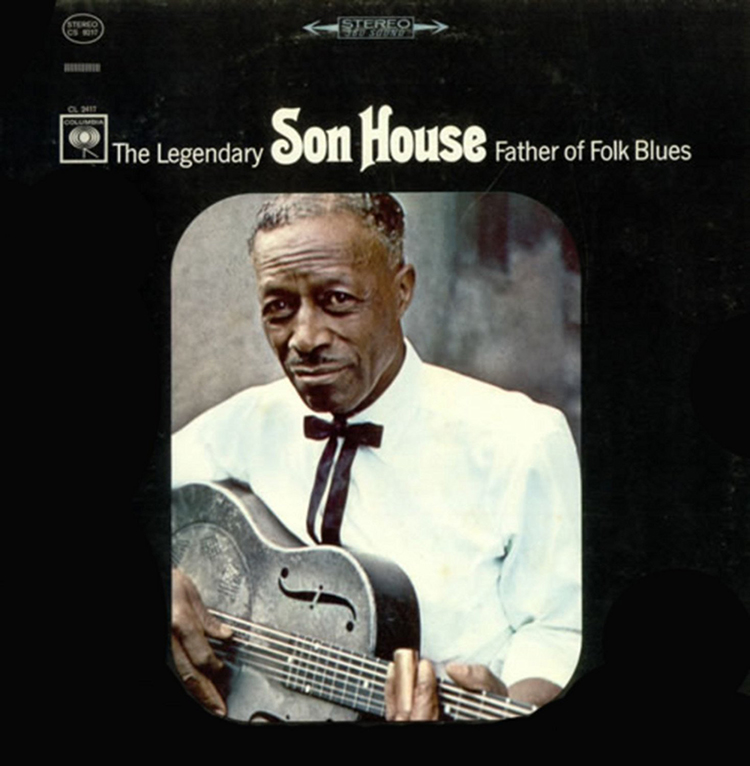
One of our SECRETS readers recently challenged me to list the top five records in my collection in each genre. It was a zesty enterprise and an enlightening one, as it turns out, as it caused me to realize that I’m a bit deficient in the audiophile Blues category. In my defense, I’m not aware of a ton of available product that fits that description. But Analogue Productions is doing some titles, and I’d had my eyes on Father of the Delta Blues by Son House as done by Pure Pleasure for quite some time. I took the challenge as a sign, and I began to shore up my weaknesses right away. We’ll start with the House record here, and then move over into one of the recent AP releases next. Good times!
I’d had a standard Columbia Records reissue of Father of the Delta Blues (which they called “Father of the Folk Blues”) for years, but the newer Pure Pleasure version has more songs and is presented in stereo. It’s also much more natural sounding than the Columbia version. I found Son House via Robert Johnson (probably via Led Zeppelin) in high school. I dug up a couple of CDs at the independent record store where I worked, and was blown away by the rawness and grit in the performances. The Pure Pleasure discs display that grit with an almost terrifying amount of transparency. I hear details in Houses’ vocal delivery, especially, that I’d never picked out on the Columbia disc. He grunts off mic, and you can hear a trembling in his voice that is not as obvious in the standard release. There are some repeated tunes as five of the songs are “alternate takes,” but thankfully those are on a side of their own unlike the Complete Robert Johnson, for instance, which has been reissued and remastered to infinity and beyond, but has always had the alternate takes immediately following the original versions so that you’re constantly listening to the same song twice in a row. The PP discs are also housed in a gatefold cover with an additional essay taken from a 1992 CD reissue. Basically, you’re getting more material in a finer presentation with the PP version along with the improved sonics. The pressings are pristine, and the material is explosive. Some of my favorite Son House tunes are contained herein (“Death Letter,” “John the Revelator,” and “Grinning In Your Face”). It’s a prime entry into the arena of audiophile Blues offerings which is close to contradictory. There was almost certainly nothing fancy about the recording set-up for these sessions, but that may have worked in our favor half a century later. Because there’s also nothing at all standing between you and the ghost of Son House when you here the PP discs. They simply presented the simple recordings in a simply transparent way. Not much more to ask for after that, I’d say.
If you’re a fan of House or the Delta Blues, you need these discs on your shelf. They’ve been around for a while so you may want to get moving. I’m glad I finally did, and I’m excited about my new Blues records. It’s a good day to have the Blues, y’all.
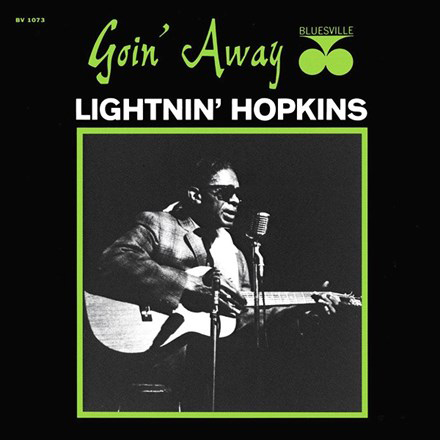
I’m not as familiar with Lightnin’ Hopkins’ work as I should be. I know that he heavily influenced R.L. Burnside, and that should have moved me to action years ago. I guess I got distracted. Luckily, Analogue Productions is doing a couple of his in their Prestige reissue series. They are stereo recordings that were handled by none other than Rudy Van Gelder himself. Which explains why Goin’ Away sounds so damn good. Anyone paying attention knows that I think the Music Matters Jazz Blue Note reissues (perhaps Van Gelder’s most famous works) are the best thing to happen to vinyl in recent history, perhaps ever. And I also have some AP titles that are knocking on the door. Goin’ Away, as it turns out, is one of them. Whew!
Here’s the thing: the Blues titles that I would most want to hear in an audiophile presentation are likely the last recordings that will ever be given that treatment. These would have been earlier works on regional labels, and I’d be surprised if any of the tapes are in workable condition, or if the tapes could be found or if tape was even used for many of them. Seems like some of the recordings might have predated that technology, but I don’t know enough about it to speak with any authority on the subject. If anyone does, please feel free to comment. So, the recordings that labels like AP are tackling are typically from the ’60s at the earliest. By then, there are electronic instruments involved and larger combos employed. I’d prefer to hear Lightnin’ Hopkins playing solo, acoustic, and stomping on floor boards as percussive accompaniment. As it stands, he’s playing acoustic with a drummer and a bassist on most tracks. What makes the whole thing fly, in addition to the quality of the performances themselves, is the sonic intimacy. I mean, his voice is right there. It’s an “in the room” kind of experience that almost certainly would not have been possible with earlier recordings, definitely not if his initial works were on 78s. His esteemed guitar work is not as up front, but it’s certainly present with plenty of detail if not much “airiness.” And the other players don’t overwhelm Hopkins’ contributions so it’s a win all the way around in my book. As of this writing, I prefer Goin’ Away to the more subdued Folk Singer by Muddy Waters. And that’s saying something because I adore Muddy Waters’ work right on up through the ‘70s. Of course, both are AP titles so you can’t really go wrong. Maybe it’s recent bias as I’ve loved Muddy for years. It’s exciting to have them both in my collection, regardless, and I’m looking forward to checking out a couple of the other Blues titles in this series along with plenty of the Jazz discs as well. Music Matters is folding up their tent soon so I’ve got to find another series to glom onto. Maybe this is it.
In the meantime, my Blues collection has improved significantly with the two releases we’ve explored this month. If you count the Josh White disc by Ramseur from a couple of months back, it gets that much better, but that feels more Folk-y to me. Any old way, these records are highly recommended. Now, I sure wish someone would do the Robert Johnson recordings in a way worth hearing…
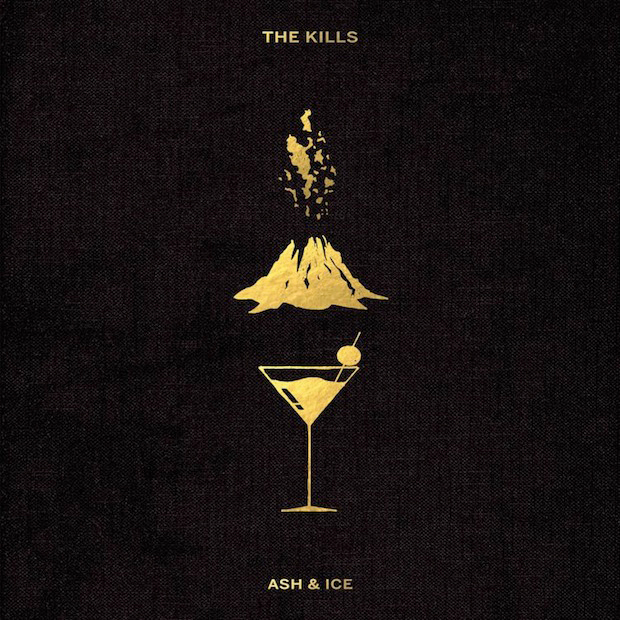
Alright. So, we took a look at the past and present of some of Alabama’s finest working songwriters, and at a couple of audiophile Blues releases documenting the work of some of the genre’s masters. Now, we’ll finish it off with… The Kills. I saw them on a bill with the Queens of the Stone Age a couple of Halloweens back so the timing is right. Their latest is called Ash and Ice. It’s been out for a couple of months, and I think there was a fancy edition formatted with additional artwork and colored vinyl, maybe. I didn’t get that one. I got this one…
I’ll start off by saying that I’ve never heard the first lick off a recording by the Kills, to the best of my knowledge, until now. I’ve been told that this record is a departure from any that have come before, but it is not at all a departure from what I saw transpire on Halloween that night in LA. The band is a duo, composed of a guy and a girl. He handles the guitar work, mostly, while she holds down the vocals and the stage stalking, spinning, cigarette smoking, and drinking. She played some guitar too. They were great. They were all painted up, and they were backed by a bunch of folks in monk’s robes beating on bass drums marching band style. I think. I was un-sober. Anyway, this record feels almost like a document of that night to my ears, although I’m unsure if they performed any songs off of it. Seems to me like the basic formula for this record (and the Halloween performance) was to trigger some samples and electronic beats while homeboy riffs over the top of it all (with more or less effects versus organic sounds, as the songs dictate), and Alison Mosshart sings. To me, the sonic effect is kinda similar to looking at any of today’s starlets onscreen or onstage. Everyone is always going on and on about how good looking they are, but I can’t tell or trust what they look like in the least. In this analogy, the Photoshop and makeup techniques that photographers use represents the electronic aspects and layering of the Kills’ music. I can’t tell that they’re “great” musicians, really, but I can certainly tell that I’ve enjoyed much of what I’ve heard from them. “Bitter Fruit,” for instance, is about as much fun as you can have listening to modern pop music. “Hum for Your Buzz” has some good, old-fashioned singing over some electric guitar strumming, and it comes off just fine. I get the impression that, like Trent Reznor, these folks are using technology to make something fun that interests them – not because they need it to cover up a deficit of talent. There’s a little something in here for everyone too. These folks are pretty high up in the fashion world, I suspect, and there’s a visual aspect of the band that I’m sure many find appealing. The music is danceable, certainly, but the song structures and textures should appeal to discerning listeners of all stripes.
These two discs are very well pressed, and the grooves have not been crammed with too much info. There’s a download card included and printed lyrics. Some pictures too. It’s all pretty compelling. If you’re looking for something new and you haven’t explored the Kills yet, go for it. That’s my advice.


